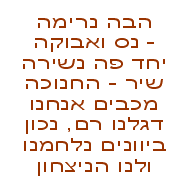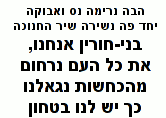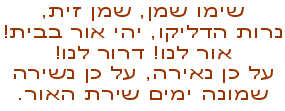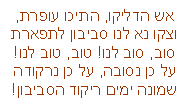|
InteGRATion into
GRATeFULLness
Singing&Sounding keeps me Sound
|
lekhi-lakh - 'go<<< >>>to yourself'
These six pages of SongGame 2007, together
with one page from "Closeup to the Past", provided free
space |
What should a Chanuka song tell or not tell?
re-edited during Chanuka 2011, Dec.
20-28, which this time overlapped Christmas
[see
also the excellent article about Chanuka in Wikipedia!]
2007_12_10 2008_12_23 When the kindergarden people sang "Maoz Tzur", Efrat looked at me and joked "Are you singing that?" I was indeed succumbing this one time, but when she caught me, I stopped. And now, today, she sent me an article which voices those reservations of mine, which I never heard anyone voice in all my 44 Chanuka Celebrations. |
lyrics: popular tune: the German carol "Tochter Zion, freue dich" |
"Tochter
Zion, freue dich" by Friedrich Haendel 1747 from the Oratorium Josua and the Oratorium Judas Maccabaeus lyrics adapted later, about 1820 first stanza according to Sacharia 9:9 my singing is based on a midi-tune |
|
The tune of "Maoz Zur" which is sung
after the lightning of the candles
indicates its origin in 19th century Germany or Poland
(and not in medieval Germany, as
Wikipedia claims).
I have nothing against that.
But when I first heard the text, in 1964, I said to my husband:
"How can someone "give thanks to God for his
preparing a "slaughter"?
He had never thought of that and agreed to never
sing this song in our house.
43 years have passed and I've never met anyone who was aware of the offensiveness
of this text.
I'm not going to sing it here either, but make up for this by singing two
and a half other songs.
"Hava narima"
isn't so fantastic either:
It is a rather childish expression of pride about the Maccabean victory.
The Wise 2000 years ago wouldn't have liked it!
They wanted to forget about those victories - which had such catastrophic
influence on later generations.*)
Instead they invented the miracle about the jar of oil which lasted for eight
days instead of for one day only.
The symbol of light became the center of "Chanuka"
(=renewed "Inauguration" of the Temple, after it had been defiled
by the Greek authorities).
But what I like about this song is,
that it is the adaptation of "Tochter
Zion", one of the most popular German Advent
[Christmas] carols,
(also
adapted to an English and Norvegian Easter song)
which in turn is the adaptation of an aria in Haendel's
"Josua" and later also in "Judas Maccabaeus".
I cherish integrations like this.
"Simu Shemen" is
a less famous Hebrew Chanuka song,
which is truly loyal to the meaning of Chanuka.
The Chanuka-song which I most identify with is "Anu nos'im Lapidim"....
|
modification in July 2013: |
Tochter Zion, freue dich!
Tochter Zion, freue dich! 3. Hosianna, Davids Sohn, |
|
| *) I fully agree with the following passage
in Wikipedia: The classical rabbis very much downplayed the military and nationlistic dimensions of Hanukkah, and some even interpret the emphasis upon the story of the miracle oil as a diversion away from the struggle with empires that had led to the disastrous downfall of Jerusalem to the Romans. With the advent of Zionism and the state of Israel, these themes were rapidly transvalued. In Zionist Israel, Hanukkah was transformed into a propagandistic celebration of military strength, a kind of antidote to what was perceived as the powerless Diaspora Jew that the Zionists felt that the Jews in the State of Israel needed to psychologically overcome. In North America especially, Hanukkah gained increased importance with many Jewish families in the latter half of the twentieth century, including large numbers of secular Jews, who wanted a Jewish alternative to the Christmas celebrations that often overlap with Hanukkah. Though it was traditional to give "gelt" or money coins to children during Hanukkah, in many families this has changed into gifts in order to prevent Jewish children from feeling left out of the Christmas gift giving. While Hanukkah traditionally speaking is only
a minor Jewish holiday, as indicated by the lack of restrictions on
work other than a few minutes after lighting the candles, Hanukkah has
taken a place equal to Passover |
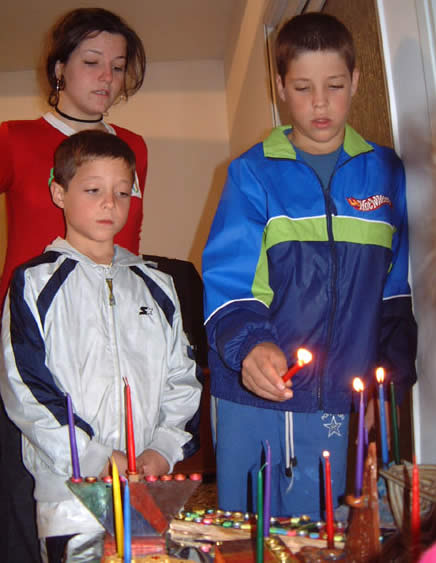 Chanuka 2002, Immanuel's children, Elah, Alon, Tomer with Micha's Family at Mazkeret Batya |
![]()
|
lekhi-lakh - 'go<<< >>>to yourself'
These six pages of SongGame 2007, together
with one page from "Closeup to the Past", provided free
space |
2011_12_20
 |
En-JOY-ing
and growing with Mika and my Family following the documentation "Mika's Heaven on Earth", inserted since Song Game 2007_01_01 |
 |
continued in order to be completed
"If you want to see the photos of Mika's birthday
celebration on Shabbat, you must open Facebook".
This was one of the few "personal" sentences
from Efrat's mouth on Mika's Day of Birth, directed at me.
Another was - after I said, that the transformation of "my" room
into a "Creation-Room" - was pretty:
"Did you see, that we threw out the bed and left
only the mattrass?" "Yes I saw it!"
I had suggested this already 5 years ago, but then
they were not sure, that this was good.
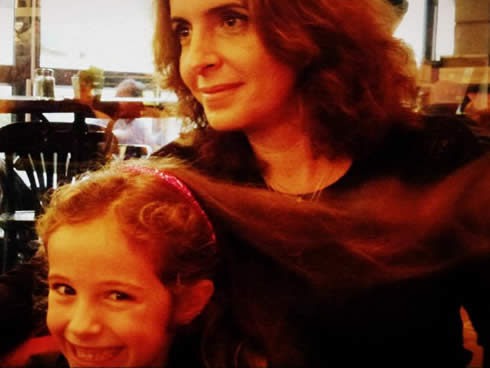 |
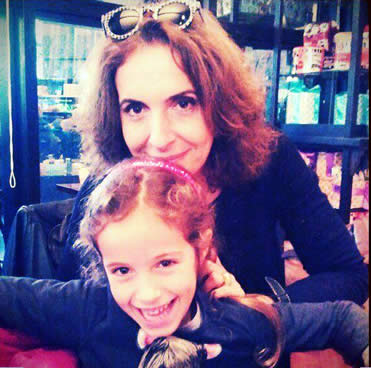 |
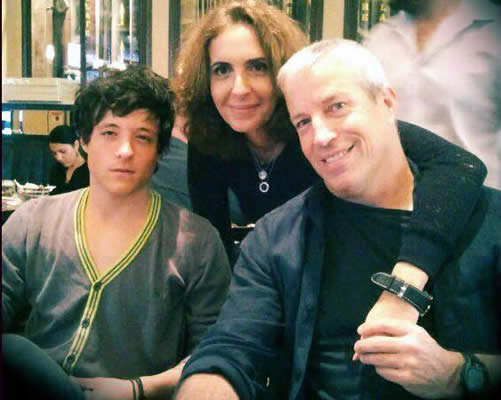 |
3 images and some texts from Efrat's Facebook
page
|
Mika's real day-of-birth was an Tuesday, December
20, 2011.
After a sentence on my part (which triggered Mika's parents),
we reached an agreement, that on the day of Mika's birthday,
I would go straight to her noon-school, not earlier than 15:30
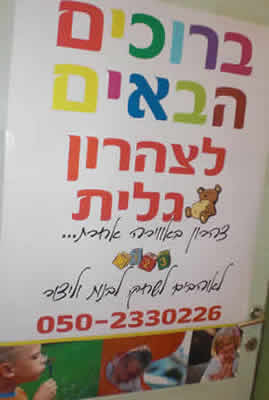 |
When
I came in, Gallit was presenting the flags of blessings, which the other 26 kids had prepared for Mika. Then I showed my gift and explained what was embroidered on the cover, and that this sentence from a psalm was also engraved on the tombstone of Mika's Great-Grand-Father Franz Rosenzweig. Gallit was delighted and helped me with what I wanted "to transmit" despite interruptions like the appearance of grandparents who came to fetch a kid. |
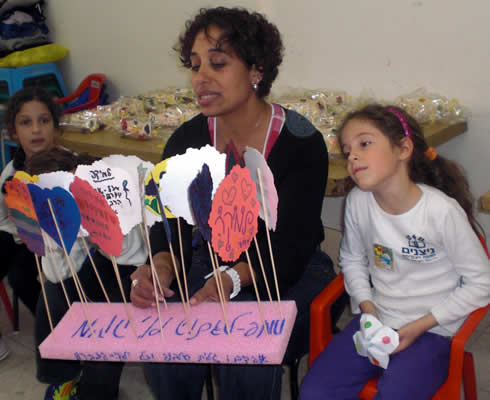 |
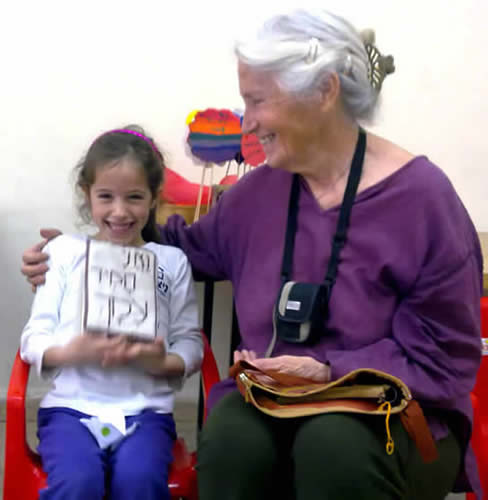 |
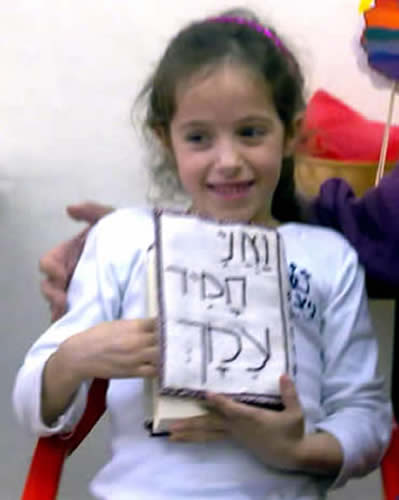 |
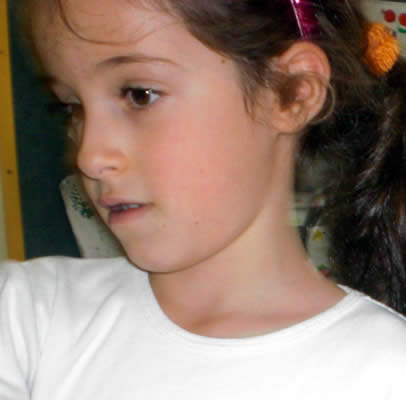 Mika is distributing the intended sweets to the other children |
Here is the sculpture "Mika's Bible"
which I inserted in "Das
Herz ist wach" and also sent to Mika's parents
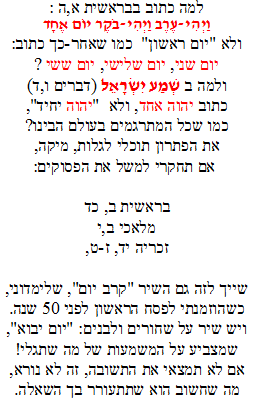 |
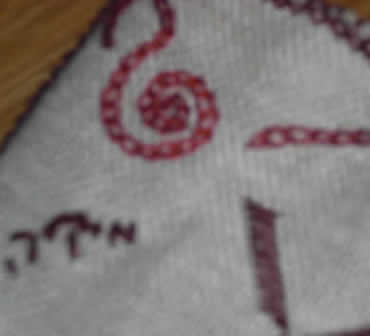 Mika, great-grand-daughter of Franz Rosenzweig. From him I learnt to understand the Hebrew Bible, and because of this gift of life I met his son Rafael and gave birth to his son Immanuel, Mika's father. |
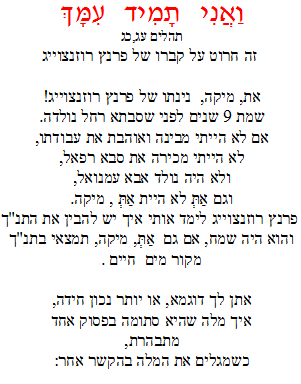 |
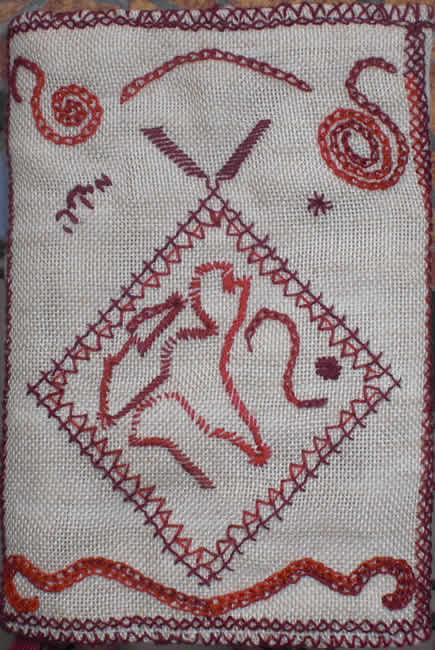 |
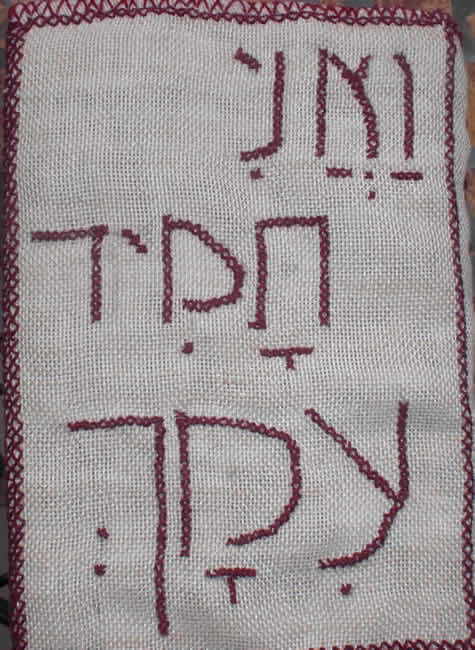 |
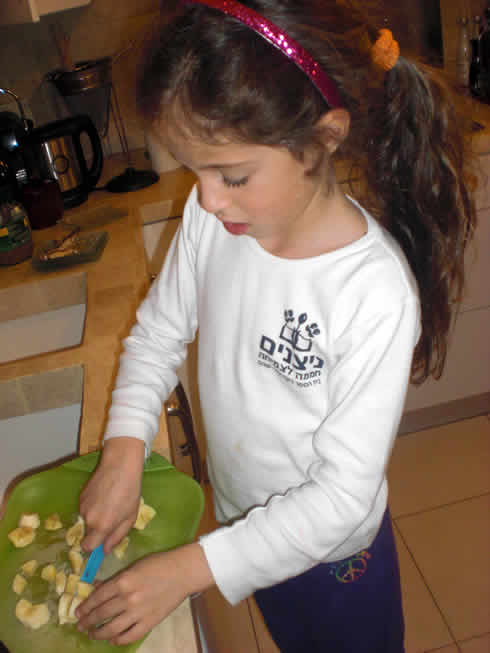 |
At 4 o'clock Mika's mother comes in, as fixed
before,
But then comes one of her best friends,
During this time I try to take photos |
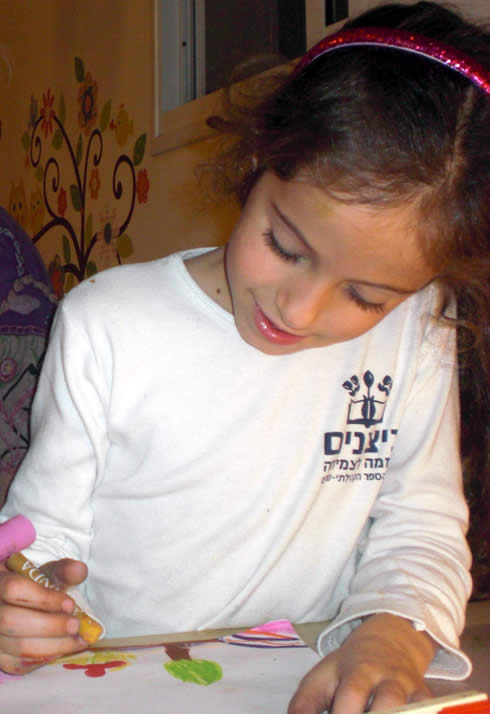 |
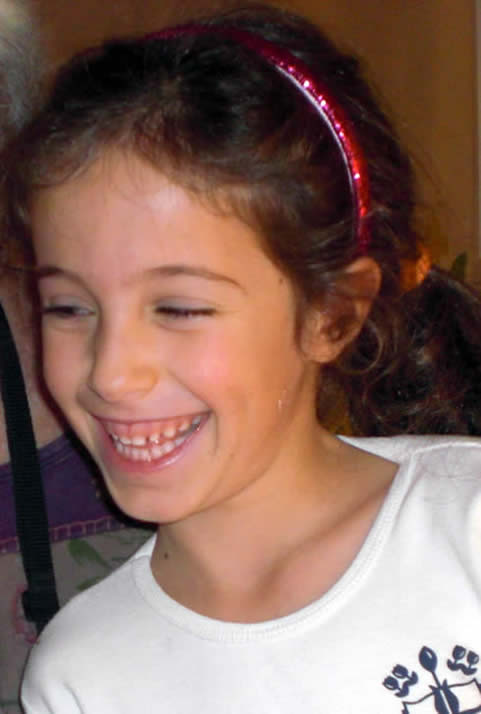 |
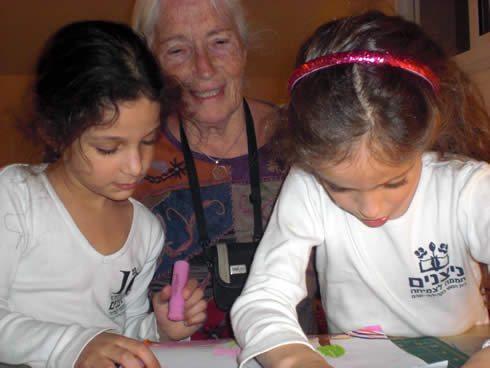 |
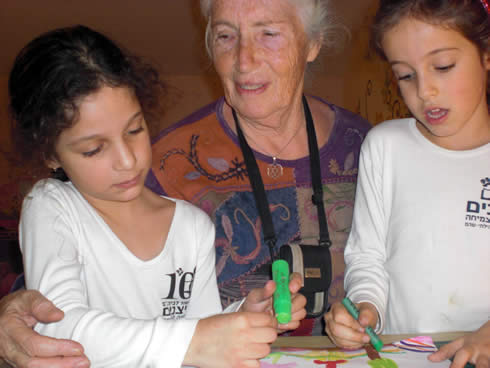 |
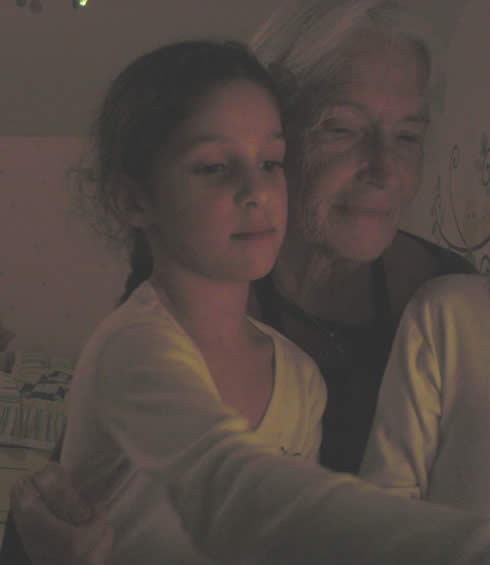
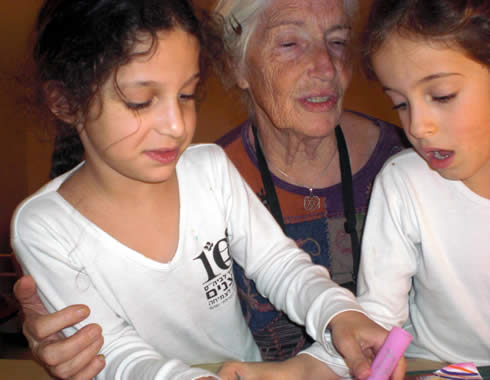 |
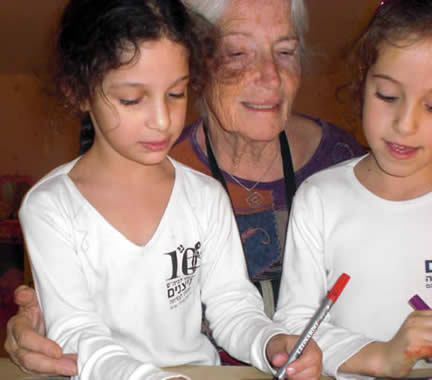 |
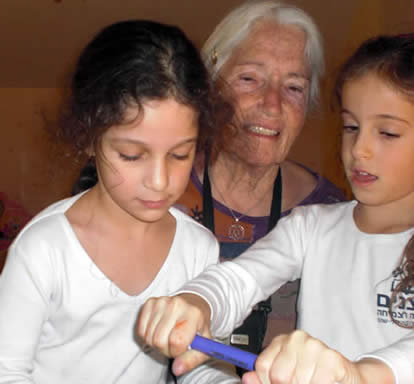 |
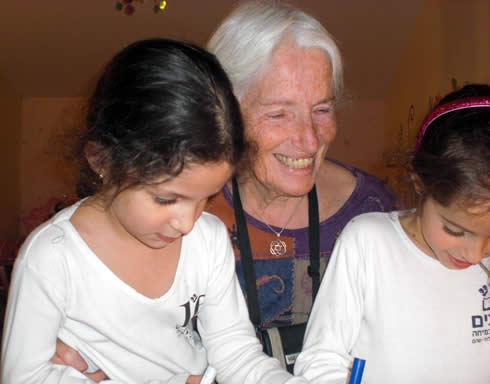 |
I complemented the drawing by some strokes of "Panda"-colors,
also in order to encourage Mika to use these, and not only the "tushim".
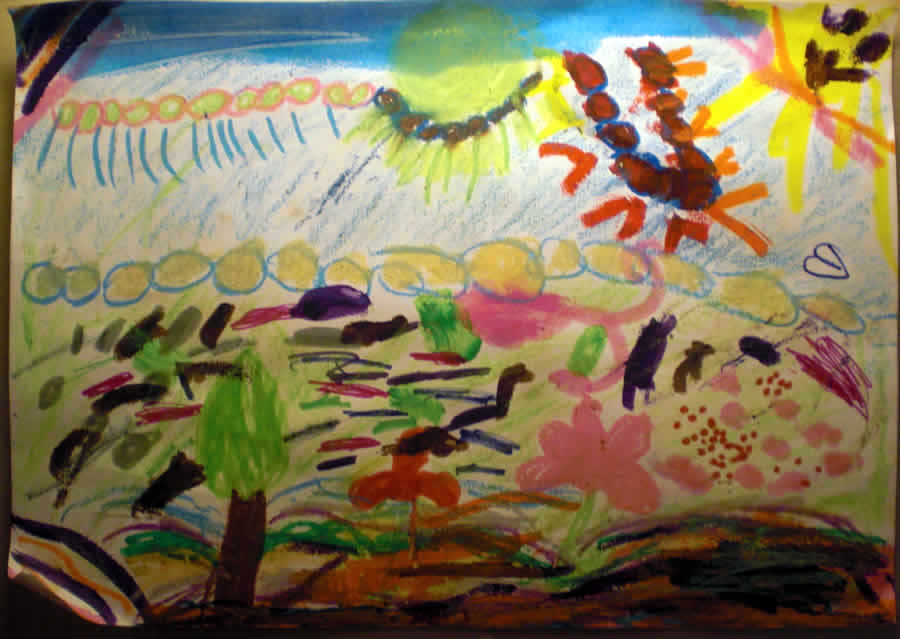
Then the girls dressed for their gymnastics-course
at 6 o'clock
and - while still having a little time - decided to study the blessings
which Mika's mates in the noon-school had tried to "spell-out" for
her.
Since many are like Mika in first grade, the decyphering was a challenge.
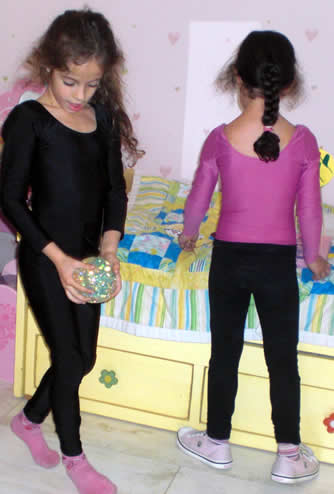 |
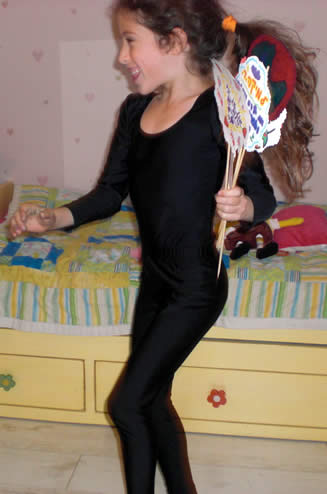 |
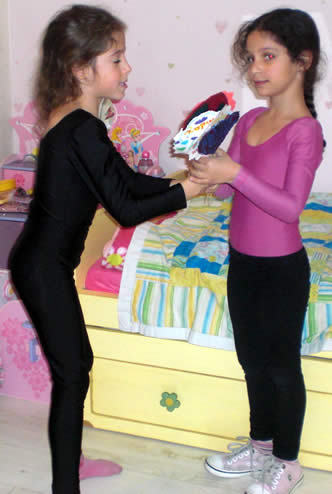 |
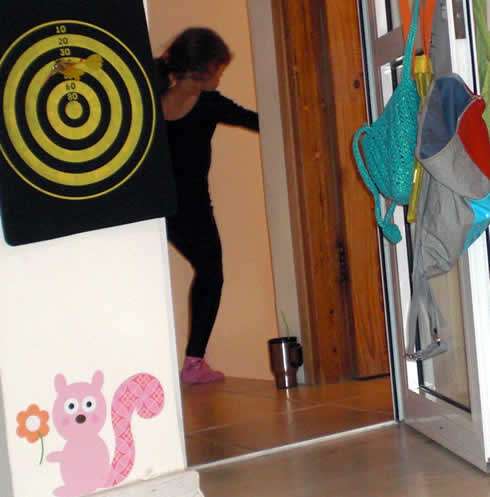 |
When I came this far with taking "stills",
Mika grasped the camera and put it on "movie".
Once again, I'm going to crop scenes and enjoy the "slow motion"
of Mika's movements.
17 seconds 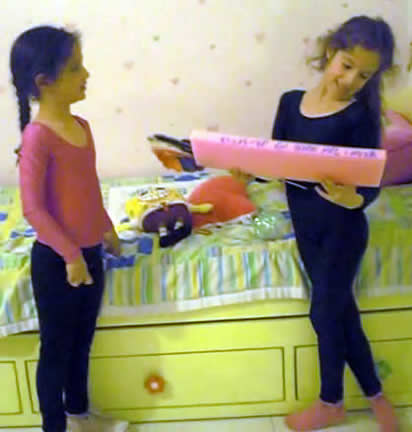
|
30 seconds 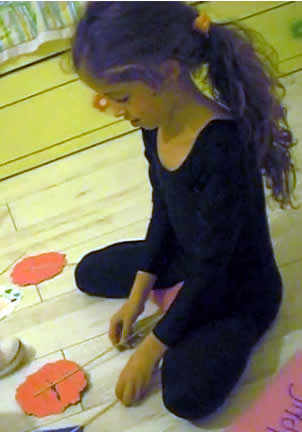
|
the slow-motion of this movie is continued - towards completion - on a page with the last Chanuka-song inserted in 2007
|
lekhi-lakh - 'go<<< >>>to yourself'
These six pages of SongGame 2007, together
with one page from "Closeup to the Past", provided free
space |
